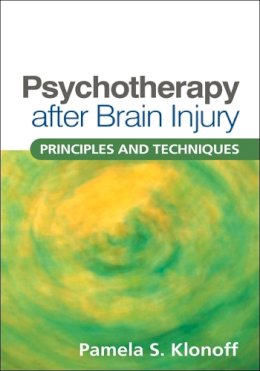
Psychotherapy after Brain Injury: Principles and Techniques
Pamela S. Klonoff
This book presents hands-on tools for addressing the multiple ways that brain injury can affect psychological functioning and well-being. The author is a leader in the field who translates her extensive clinical experience into clear-cut yet flexible guidelines that therapists can adapt for different challenges and settings. With a focus on facilitating awareness, coping, competence, adjustment, and community reintegration, the book features helpful case examples and reproducible handouts and forms. It shows how to weave together individual psychotherapy, cognitive retraining, group and family work, psychoeducation, and life skills training, and how to build and maintain a collaborative therapeutic relationship.
Product Details
About Pamela S. Klonoff
Reviews for Psychotherapy after Brain Injury: Principles and Techniques
Linda Clare, PhD, Professor of Clinical Psychology and Neuropsychology, Bangor University, United Kingdom "Klonoff provides a window into the unique world of brain injury, where psychology and biology intertwine. What is remarkable about this book is its level of detail. It delineates step by step the goals, tasks, and challenges of each stage of recovery, and features forms, checklists, and lists of adjunctive resources. Excellent case material illustrating both successful and unsuccessful treatment brings the work alive. A welcome resource for treating clients who have experienced any type of brain injury."
Robert Taibbi, LCSW, private practice, Charlottesville, Virginia "An impressive accomplishment. The author is a sure-footed, experienced clinician who shows how to guide clients in their arduous climb toward optimal rehabilitation outcomes. She addresses the client's need to regain functional competence and a feeling of 'belonging,' reconstitute a sense of self, accept limitations posed by the brain injury, and find meaning in postrehabilitation attainments. Many suggestions for facilitating essential compensatory processes are included. This book should become part of the reference library of both novice and seasoned practitioners in the field of neuropsychological rehabilitation."
Yehuda Ben-Yishay, PhD, Director, Brain Injury Day Treatment Program, Rusk Institute of Rehabilitation Medicine, New York University -
